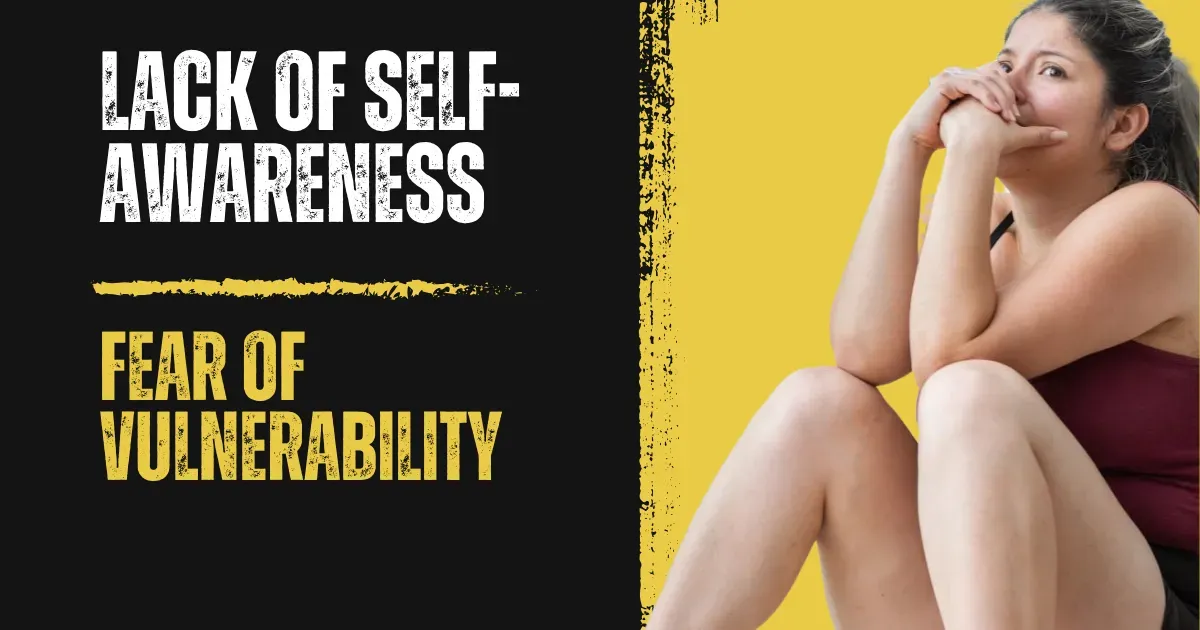Last Modified Date
2025-1-11T14:30:00+00:00Signs Your Past is Impacting Your Current Love Life
Your past experiences and relationships can significantly impact your current love life. Recognizing the red flags indicating your past affects your present relationship is essential.
These red flags can include behavior patterns similar to those in past relationships, unresolved emotional baggage, or trust issues. For example, suppose you have previously been in a toxic relationship where your partner was controlling or abusive. In that case, you may find yourself attracting similar partners or struggling with trust and intimacy in your current relationship.
ToC
Additionally, past experiences can shape your beliefs and expectations about love and relationships. If you have had negative experiences, you may fear or hesitate to open up to someone new or commit to a long-term relationship. On the other hand, positive past experiences can also influence your current love life by giving you confidence and a healthy understanding of a loving relationship.
Reflecting on your past experiences and relationships is essential to understanding how they may influence your current love life. Seeking therapy or counseling can be helpful in processing and healing from past traumas or patterns. By addressing and working through these issues, you can create healthier and more fulfilling relationships in the future.
Here are some key signs to watch out for:Fear of Vulnerability
One of the most prevalent ways your past can affect your current love life is through a fear of vulnerability. If you've been hurt in previous relationships, you may develop a deep-seated fear of getting hurt again. This fear can manifest as an unwillingness to open up emotionally to your current partner. You might find it challenging to express your feelings, share your thoughts, or even say, "I love you," because you fear vulnerability. This fear can hinder your relationship's intimacy and emotional connection, as genuine closeness often requires vulnerability.
Avoiding Commitment
A fear of vulnerability can also lead to a fear of commitment. If you've been hurt before, you might hesitate to fully commit to a long-term relationship out of fear that it will eventually lead to pain and heartbreak. This can result in you keeping one foot out the door, emotionally unavailable for a deeper connection. Your partner may sense your reluctance to commit, which can create tension and dissatisfaction in the relationship.
Unresolved Issues
Unresolved conflicts from past relationships can cast a long shadow over your love life. If you had significant disputes or issues with previous partners that were never fully addressed or resolved, these unresolved conflicts could resurface unexpectedly. They may emerge as triggers for arguments or as emotional baggage that affects your ability to trust and communicate effectively with your current partner.
Unhealed Wounds
Emotional wounds from past relationships, such as betrayal, rejection, or abandonment, can linger beneath the surface, impacting your self-esteem and overall emotional well-being. These unhealed wounds may cause you to doubt your self-worth, leading to feelings of inadequacy in your current relationship. You might constantly seek validation or reassurance from your partner, which can strain the relationship over time.
Lack of Self-Awareness
Lack of Self-Awareness and unresolved issues from previous relationships can lead to repeating negative patterns and behaviors. For example, if you have experienced betrayal or abandonment, you may have trust issues in your current relationship. Additionally, you must take the time to heal and reflect on past experiences. In that case, you may bring unresolved emotions and baggage into your new relationship, which can cause unnecessary conflicts and misunderstandings.
Lack of self-awareness can also influence how past experiences affect your current love life. Suppose you are unaware of how your past has shaped your beliefs, expectations, and behaviors. In that case, you may unknowingly sabotage your relationships or attract partners incompatible with your needs and values. It is crucial to take the time to reflect on your past and understand how it has influenced your present mindset and actions.
Ignoring Triggers
A lack of self-awareness about how your past affects your current love life can be detrimental. You may fail to recognize emotional triggers—events or behaviors that remind you of past hurts or traumas. Without awareness, you're more likely to react emotionally, often with anger or defensiveness, when these triggers are activated. (getButton) #icon=(link) #color=(#2339bd) #text=(This can lead to unnecessary conflicts and misunderstandings with your partner.)
Blaming Others
When you lack self-awareness, you may also blame your partner or external factors for relationship issues without considering your contributions. This can lead to a cycle of finger-pointing and defensiveness, preventing constructive communication and effective problem-solving. Taking time for self-reflection and acknowledging your role in relationship dynamics is crucial for growth and improvement in your current love life.
- Repeating Mistakes: If you notice you keep making the same mistakes in your relationships, it's a sign that your past influences your behavior.
- Choosing Similar Partners: Continuously selecting partners with similar negative traits as your past partners suggests unresolved issues.
Emotional Baggage
- Difficulty Trusting: It could be a sign of emotional baggage if you find it hard to trust your current partner due to past betrayals or heartbreaks.
- Insecurity: Lingering insecurities from past relationships may lead to jealousy and self-doubt in your current relationship.
Comparison and Idealization
- Comparing Partners: Constantly comparing your current partner to your past ones may hinder your ability to appreciate their unique qualities.
- Idealizing Exes: If you idealize your ex-partners, it can create unrealistic expectations and dissatisfaction in your current relationship.
Conclusion
Acknowledging and addressing the impact of your past on your current love life is essential for building healthy and fulfilling relationships. By (getButton) #icon=(link) #color=(#2339bd) #text=(recognizing these) red flags, you can work towards healing and creating a more positive romantic future.
Source & Credits:
(getButton) #text=(Emotional Maturity in Toxic Situations) #icon=(link) #color=(#8134af)
(getButton) #text=(Mood Swings: Techniques To Manage Mood Fluctuations) #icon=(link) #color=(#348498)
(getButton) #text=(Level Up Your Love Life: Strategies for Setting Relationship Goals) #icon=(link) #color=(#2339bd)
(getButton) #text=(Yoga, The Genuine Connection Between Mind Body And Spirit) #icon=(link) #color=(#dd2a7b)



.webp)
